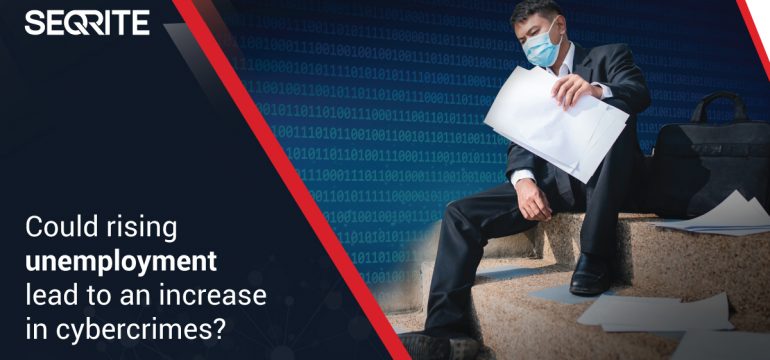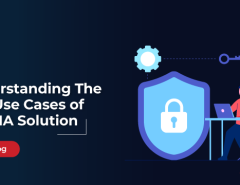A few numbers provide a sobering perspective of the massive global economic impact the ongoing COVID-19 pandemic has had. Early on, when the pandemic had just started, the International Labour Organization (ILO), a division of the United Nations, estimated that approximately 25 million jobs could be lost worldwide as a result of the pandemic.
The United States, which saw high economic growth in the preceding years, witnessed its unemployment rate rising to 14.7%, the highest since the days of the Great Depression. In India, data released by the National Statistical Office (NSO) on 31st August 2020 showed that the country’s GDP had shrunk by 23.9 % in the period between April and June, the first time the economy had contracted in over 40 years.
The link between economy and cybercrime
These numbers put in context the instability the global economy is currently going through because it has an impact on cybercrime as well. In a report published in August 2020, Sibylline, a global strategic risk consultancy forum, warned organizations to prepare for a range of issues that have been exacerbated by the COVID-19 crisis.
The report warned that “Rising unemployment and hardship, as well as an increasing focus on inequality, will serve as a key trigger for unrest across the world. Young adults and ‘blue-collar’ roles are set to be most affected, worsening long-standing grievances among marginalized communities.” To put it bluntly, there are many types of people who look to profit from a crisis. For cybercriminals, a crisis is a perfect opportunity to capitalize on – these criminals thrive in chaos and instability and want to use it to their advantage.
The rise in “Quick money” schemes
These kinds of social conditions will lead to an increase in “get rich fast” schemes with their perpetrators looking to make quick bucks. They will not be interested in schemes which require too much time or technological know-how, but will only be interested in getting money as soon as possible.
Perhaps that’s why COVID-19 related phishing attacks were observed to have seen a huge rise in March ‘20, according to a report. Attackers are looking to capitalize on the fear and uncertainty prevalent at these difficult times. They want to exploit people’s fears and lowered guards at a tough time.
Impersonation scams
The World Health Organization had to put out an alert warning the world to be careful of fraudsters who claim to be from WHO and seek money. Impersonation is a major issue due to a falling economy and it can take the form of malicious criminals pretending to be well-known brands and trying to get individuals or enterprises to part with information.
There is no other way to deal with fraudulent impersonators other than being wary and reporting them to the authorities when required. You should especially be careful of sob stories where people are asking for money for a certain cause. Donate your money only after verifying that your money will reach the cause.
Stay safe from an increase in cybercrimes by deploying a one-stop solution for all your enterprise security needs. Speak to us today for a thorough assessment of your cybersecurity posture. Drop-in a hello at marketing@seqrite.com.




